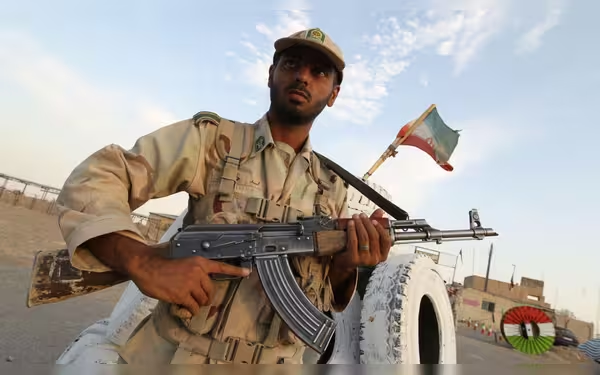Thursday, November 7, 2024 04:40 PM
Six Killed in Militant Attacks in Southeastern Iran
- Six fatalities in separatist gun attacks in Iran.
- Jaish Al-Adl claims responsibility for violence.
- Ongoing unrest in Sistan and Baluchistan province.
 Image Credits: arabnewspk
Image Credits: arabnewspkSix individuals were killed in separatist attacks in southeastern Iran, highlighting ongoing unrest in Sistan and Baluchistan province.
In a tragic turn of events, six individuals lost their lives in a series of gun attacks carried out by militant separatists in southeastern Iran. This violence unfolded in the province of Sistan and Baluchistan, an area known for its ongoing unrest and struggles involving various groups. Among the deceased was a local head of the Islamic Revolutionary Guard Corps, Parviz Kadkhodaei, who was attending a school ceremony in the small town of Bent when the first attack occurred. The incident highlights the persistent challenges faced by this region, which is home to the ethnic Baloch minority.
The attacks were executed by gunmen from Jaish Al-Adl, a militant group that operates from Pakistan and advocates for the rights of the Baloch people. The first assault resulted in the deaths of Kadkhodaei and two volunteer members of the Guards, while the second attack in the town of Khash claimed the lives of two police officers. These incidents are part of a broader pattern of violence in Sistan-Baluchistan, a province that borders both Pakistan and Afghanistan and is one of Iran's poorest regions.
Historically, Sistan-Baluchistan has been plagued by unrest, with drug-smuggling gangs and separatist rebels frequently clashing with government forces. Just last month, Jaish Al-Adl was responsible for the deaths of four border guards in two separate attacks. The situation escalated earlier this year when Iran conducted missile and drone strikes against militant groups in Pakistan, prompting retaliatory actions from Pakistan against militants operating within Iranian territory.
It is important to note that Pakistan's Balochistan province also grapples with its own issues of low-level insurgency, as separatist militants challenge the Pakistani government. These groups often find common ground with their Iranian counterparts, creating a complex web of conflict that spans both nations. Despite their historical strategic alliance, Iran and Pakistan continue to face significant challenges in addressing the threats posed by these militant groups.
The recent attacks serve as a stark reminder of the ongoing violence in the region and the urgent need for effective measures to address the root causes of such unrest. As both countries navigate their complicated relationship, it is crucial for them to work together to foster stability and peace in the border areas. The loss of life in these attacks is not just a statistic; it represents the ongoing struggle of communities caught in the crossfire of political and ethnic tensions. Only through dialogue and cooperation can a path toward lasting peace be forged.













